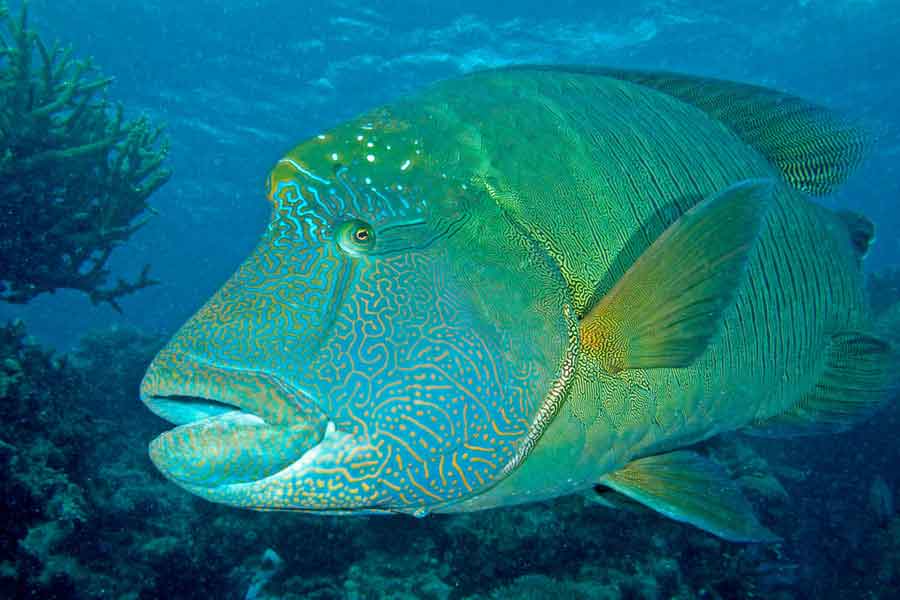
If you want to provoke the complete destruction of an animal species and make it disappear from the face of the Earth, all you have to do is spread the word that any part of an individual of that species is a powerful aphrodisiac.
Once the rumor is implanted, fortunes will be paid to obtain it. Markets will demand the prey, and hunters will not give it a break until they have completely exterminated the species. It doesn’t matter if it’s an African rhinoceros, the fiercest of sharks, or the smallest of land snails. It will be irretrievably lost.
The Napoleon fish is a shy inhabitant of the Indian Ocean’s depths. This gentle creature can reach up to 2.3 meters in length and weigh up to 190 kilograms. Due to its size, it doesn’t have many enemies in the deep, and that’s why it is usually peaceful. It often eats from the hands of divers and gladly accepts their caresses, which makes it inevitably vulnerable. A few years ago, it became fashionable to consume its lips in oriental restaurants, based on an unconfirmed rumor that its lips contained a powerful aphrodisiac.
This trend was adopted by the most exotic food establishments in Hong Kong, where a dish of Napoleon fish lips reaches $300, and where diners can choose from a large tank of live Napoleon fish. To transport them alive and keep them in good condition, they are captured using cyanide. When the large fish is attacked, it seeks refuge in the coral, and two underwater hunters follow it there and spray cyanide into its cave. This stuns the animal, which is then taken to the surface and placed in floating cages where the anesthetic effect gradually wears off. It is then transported to China on specialized ships. Cyanide doesn’t affect the fish’s meat as it concentrates only in its liver, and the relatively healthy Napoleon fish ends up in the tank.
Meanwhile, in the area where cyanide was sprayed, hundreds of small fish and invertebrates are left dead. Death also reaches the coral itself, where they all sought refuge. This practice is spreading across the 17,000 islands of Indonesia, and hunters with cyanide have already been seen in the Great Barrier Reef. Personally, I suspect that many of the myths that lead to these killings are created by the local fishermen themselves. A few years ago, an Indonesian artisanal fisherman could barely survive on the proceeds from his catch. Today, an underage boy can earn a salary of $400 per month, three times more than the income of a university-educated official in that country.
Every year, coral seas are being devastated, small fish are dying, corals are being exterminated, and large fish are being served in luxury restaurants in the East. We don’t know, because it has never happened before, how this story of such destruction will end. We don’t know how this will change the sea, but we do know that if we are going to throw the health of the planet and the survival of the sea out the window, let it not be just so a wealthy gentleman can achieve dubious satisfaction on an even more doubtful night of pleasure.
«You cannot defend what you do not love, and you cannot love what you do not know.»

